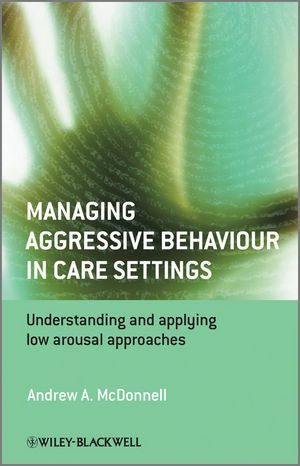
Dr. McDonnell, Andrew, Doctor of Clinical Psychology
Dr. Andrew McDonnell is a Clinical Psychologist and Director of Studio3 Training Systems located in Warwickshire, UK. He has a special interest in arousal mechanisms in people with autism and the management of severe challenging behaviours. Other areas of interest are stress management, person centred approaches to behaviour management, arousal mechanisms and their application to human behaviour, and sensory perceptual processing differences. Andrew’s doctoral thesis evaluated the impact of staff training in low arousal approaches and has been the subject of his book Managing Aggressive Behaviour in Care Settings: Understanding and Applying Low Arousal Approaches. The low arousal approach was first developed by Dr. McDonnell. He has lectured on this subject in Europe, Africa and Asia.
What is the Studio III Group? The Studio III Group comprises three individual companies, all of which promote the ideals, philosophies and benefits of non-aversive behaviour management. Studio III Training Systems was the first company to be formed, and with its fusion of skills drawn from academic researchers, applied clinicians, psychologists (educational and clinical), speech and language therapists, doctors, teachers, movement skills trainers as well as nurses with RMN and RMNH qualifications. Its scope broadened to include individualized behaviour management plans and the promotion of other pro-active approaches. From this was born Studio III Clinical Services, a psychology based provider of specialist input to services and individuals alike.
“If You Can Keep Your Head While All About You are Losing Theirs” (Kipling): Applying Low Arousal Approaches to Everyday Settings
Whilst many advances have been made in supporting people with autism, the management of behaviours which challenge supporters is a less well understood area. This presentation will focus on how to manage behaviours of concern using a low arousal approach. This approach was developed to help supporters to practically manage ‘highly aroused’ and stressed individuals. There is an emphasis on verbal and nonverbal strategies to de-escalate crisis situations. In addition, the approach involves ‘reflective practice’ that is, ‘What is my own contribution to the situation? Low-arousal approaches include interaction, diffusion and distraction strategies; coping with challenging behaviours including debriefing – why it is necessary and how to do it, managing versus changing behaviours, physical avoidance skills and physical intervention strategies. The day will include:
1) Background to the development of low arousal approaches.
2) Definition of the approach (Reflective practice)
3) Strategies for managing behaviours of concern (There will be an emphasis on practical de-escalation strategies).
4) Group exercise
5) Plenary session (group discussion)
-
Managing Aggressive Behaviour in Care Settings: Understanding and Applying Low Arousal Approaches
A practical guide for health professionals and trainers, offering evidence-based low arousal approaches to defusing and managing aggressive behaviours in a variety of health care settings.
$81.50 Product Details »
Visit Dr. McDonnell, Andrew's website.

